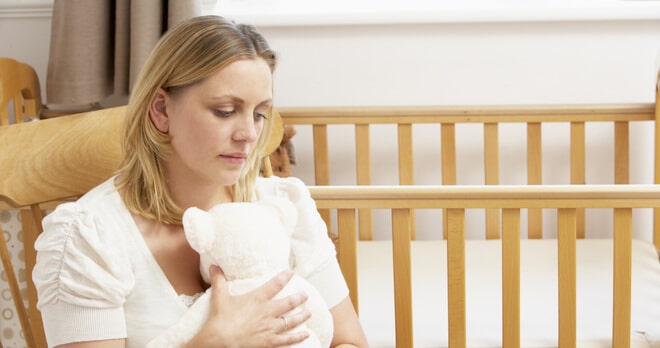How one man changed the lives of thousands of babies over the last forty years

As we mark Baby Loss Awareness Week, I think it is worth taking this opportunity to celebrate the research of Bristol based Professor Fleming, which may have saved the lives of over twenty thousand babies over the last three decades.
Sudden Infant Death Syndrome (SIDS) or ‘cot death’
Sudden Infant Death Syndrome (SIDS), commonly referred to as ‘cot death’, has been defined as the sudden death of an infant under one year of age, which remains unexplained after a thorough case investigation.
This syndrome took the lives of thousands of babies in the 1970s and 1980s and unfortunately, with little known about SIDS at the time, the sudden death of a baby led to a huge amount of parental guilt. However in the early 90s, through the research of Professor Fleming, everything began to change…
Professor Peter Fleming & the Back-to-Sleep campaign
Peter Fleming became a Professor of Infant Health and Developmental Physiology at the University of Bristol in 1982. On discovering that Bristol offered little support for families whose babies had died suddenly, he took it upon himself to visit families at home to provide them with as much information as was known at the time about SIDS.
When talking with the families Professor Fleming would gather as much information as possible about the baby’s routine to try and determine what factors may or may not have influenced the tragedy. He documented variables such as the type of bedding the baby used, the sleeping position of the baby, the heating, and any recent signs of illness.
Armed with information from over 72 bereaved families and from a further 144 families of similar aged babies that represented the control group, Professor Fleming published the results of his research in 1990.
Fleming’s publication entitled ‘Interaction between bedding and sleeping position in the sudden infant death syndrome: a population based case-control study’(1) concluded that when compared to the control group, babies who had died from SIDS were more likely to have been sleeping on their front; to have had heavier bedding; and to have had the heating on all night.
Professor Fleming’s research was a game-changer. It showed that babies’ lives could be saved if they were placed on their back to sleep, rather than on their fronts – leading to the powerful Back-to-Sleep campaign of the 1990s.
Thousands of lives saved by research
According to a case study prepared by the University of Bristol, as a result of the research of Fleming and his colleagues, the number of SIDS deaths in England and Wales fell dramatically from 1597 in 1988 to 531 in 1992. This represents 2.3 deaths per 100 live births and just 0.77 per 1000 live births respectively and is an enormous 67% reduction.
Even after the Back-to-Sleep campaign was well established in the UK, further research into risk factors for SIDS continued. This research identified that post-natal smoking, co-sleeping on a sofa and loose covering found over the baby’s head were all risk factors for SIDS.
As the results of the research were disseminated, parents educated and family habits altered, the death rate continued to drop and by 2011, the number of deaths from SIDS was just 244 per year representing 0.34 per 1000 live births. A real change from the thousands lost every year not even forty years ago.
Looking to the future
No one can deny that Professor Fleming’s research has had an astonishing impact on the lives of thousands of babies and their families but, as we mark Baby Loss Awareness Week, we remember the families who are still going through the tragedy of losing a baby to SIDS.
Over thirty years later, Professor Fleming continues to carry out research into the causes of SIDS so that one day in the future, no parent will have to endure the loss of a baby to Sudden Infant Death Syndrome.
(1) British Medical Journal 1990; 301:85